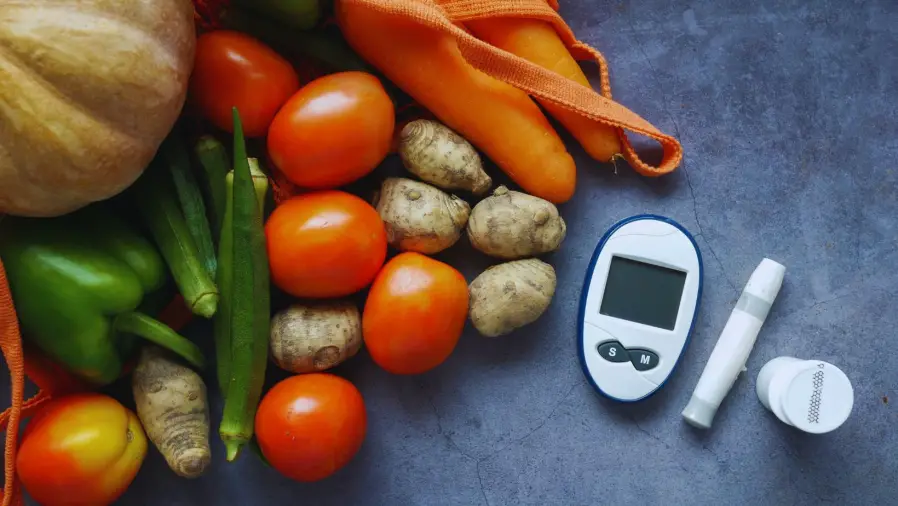Maintaining a garden can be a therapeutic hobby for people with diabetes, promoting physical activity and healthy eating. Gardening provides fresh produce and the benefit of exercise, which are essential for diabetes management.

Garden In Support Of Diabetic is not only a peaceful and productive pastime but also a strategic ally against diabetes. Engaging in this activity has been found to offer numerous health advantages, especially for those managing diabetes. Regular gardening encourages a more active lifestyle, reducing sedentary behavior and helping with blood glucose control, which is critical for diabetic patients.
Table of Contents
It also often leads to healthier eating habits, as cultivating one’s own fruits and vegetables can lead to an increased intake of vital nutrients. The mental health benefits, including stress reduction, cannot be overlooked since consistent high stress levels can affect blood sugar control. Additionally, the exposure to sunlight during gardening increases vitamin D levels, further supporting overall health. By incorporating gardening into their routine, individuals with diabetes can enjoy a natural approach to compliment their diabetes management plan.
The Green Connection: Cultivating Gardens For Diabetes Management
Creating a garden can be a powerful tool for those managing diabetes. Gardens act as natural pharmacies, filled with plants that offer health benefits. For instance, vegetables like spinach and kale help regulate blood sugar levels. Herbs such as cinnamon and fenugreek may also aid in diabetes management, according to some studies.
By engaging in gardening, people with diabetes can grow their own remedies. These remedies can influence blood sugar positively. Not only that, but the physical activity of gardening itself promotes a healthy lifestyle. Regular movement helps the body use insulin better, thus balancing blood sugar. Indeed, a garden offers both medicinal ingredients and physical exercise.
Seeds Of Health: Choosing Plants For Glycemic Control
Managing diabetes can be a challenge. Gardens offer natural helpers for blood sugar control. Bitter gourds shine in this battle. Their active compounds aid in lowering glucose levels. Regular consumption of bitter gourd can work wonders.
Leafy greens come packed with benefits too. Abundant in fiber, they slow down sugar absorption. This action helps maintain steady blood sugar levels. Kale, spinach, and Swiss chard are excellent choices. Make them a staple in your diet for better health.
The Therapeutic Rhythms Of Gardening
Gardening serves as a peaceful haven for many, with its steady, predictable patterns nurturing both mind and body. Tending to plants allows for a gentle escape from daily stresses, promoting serenity and a clear headspace.
Regular movement through gardening tasks such as digging and weeding contribute to a healthier lifestyle. This type of physical activity boosts heart health and encourages better insulin response, essential for those managing diabetes. The combination of reduced stress levels and increased exercise found in gardening can significantly help regulate blood sugar levels.
From Soil To Table: A Fresher Approach To Meals
Growing your own vegetables can lead to better health. Each plant offers a wealth of nutrients that are essential for managing diabetes. Vegetables like spinach, carrots, and tomatoes not only taste great but also help regulate blood sugar levels.
Consuming veggies soon after picking ensures you get maximum freshness and flavor. All this without added preservatives or chemicals. By preparing meals with these plants, you’ll enjoy dishes that are both delicious and nutritious. Why not try a spinach salad or fresh tomato soup tonight?
The Blooming Community: Sharing The Harvest, Spreading Knowledge
Joining a community garden offers unforeseen benefits for those managing diabetes. Local gardens create support groups, fostering bonds over shared tasks. This togetherness is vital for emotional well-being.
Educational workshops introduce gardeners to diabetes-friendly foods. They also share knowledge on maintaining a balanced diet. Growing these foods allows easy, fresh access. The hands-on experience reinforces learning.
(Best way to start Gardening Business: https://bonsainurserybd.com/best-way-to-start-gardening-business/)
Frequently Asked Questions On The Habit Of Living A Garden In Support Of Diabetic
Can Gardening Improve Diabetes Management?
Absolutely! Gardening can act as a low-impact physical activity, which is essential in managing blood glucose levels. Engaging in gardening tasks helps reduce stress and supports a healthier lifestyle, both beneficial for individuals with diabetes.
What Plants Benefit Diabetic Health In A Garden?
Certain plants like bitter gourd, fenugreek, and okra are known to have blood glucose-lowering properties. Growing these in a garden can provide easy access to foods that support diabetic health.
How Often Should Diabetics Garden For Health Benefits?
Regular gardening, about 30 minutes daily, can be a great way for diabetics to incorporate consistent physical activity into their routine, thereby contributing to better glycemic control and improved overall well-being.
Can Homegrown Foods Reduce The Risk Of Diabetes?
Yes, consuming fresh, homegrown vegetables and fruits ensures lower intake of processed foods, providing essential nutrients and fiber that can help in weight management and reduce diabetes risk.
Conclusion
Embracing the green lifestyle that garden living offers is a stride towards better diabetic health management. It is a dual gift, nourishing both body and soul. Crafting habits around nature’s bounty ensures fresher meals and regular physical activity. Take the step; your wellness path awaits in the tranquility of your garden.
(To gather more knowledge: https://www.healthline.com/health/healthful-benefits-of-gardening#helps-fight-disease)
